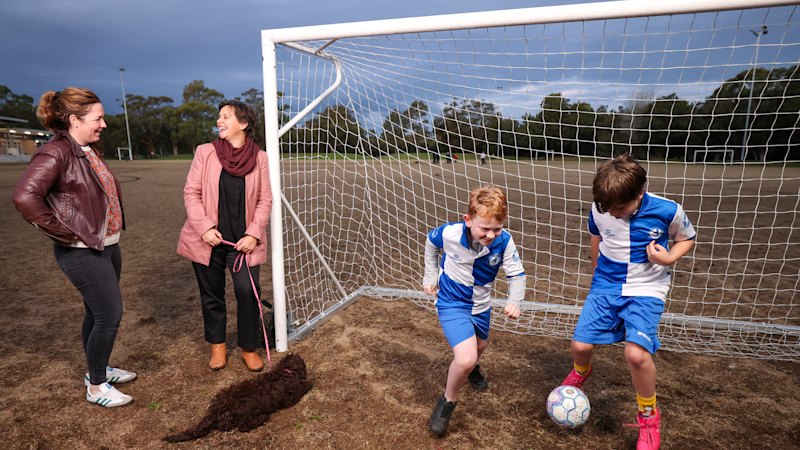Being a parent at your child’s sports game can be a rollercoaster of emotions. From the thrill of watching them score a goal to the frustration of a missed opportunity, it’s easy to get caught up in the heat of the moment. However, some parents take their emotions to the extreme, leading to incidents of verbal and physical abuse that have sadly become all too common in children’s weekend sports games.
In recent years, there have been shocking reports of fights breaking out at youth sports tournaments, parents grabbing children by the neck during matches, and sideline brawls involving aggressive behavior from adults. These extreme examples highlight a troubling trend of unsupportive and negative behavior on the sidelines, which can have a lasting impact on children’s experience of the game.
A study conducted by the University of South Australia shed light on the effects of parents’ behavior on their children’s sports participation. The research revealed that a significant percentage of young athletes have witnessed negative sideline behavior from their parents, including yelling at referees and displaying frustration during games. Notably, the study found that children often mirror their parents’ behavior, with positive parental engagement leading to more positive behavior from the young athletes.
“When athletes perceive that their parents engage in positive behavior, such as cheering and clapping, they are more likely to exhibit positive behavior towards their teammates and opponents,”
explained Alyson Crozier, a senior lecturer at the university. Conversely, negative behaviors like yelling at officials and showing frustration were linked to increased antisocial behavior among young athletes. This underscores the powerful influence parents have on shaping their children’s attitudes and actions on the field.
In response to the growing issue of parental misconduct at youth sports events, sporting clubs across Australia have implemented innovative strategies to promote positive sideline behavior. Initiatives such as arming young umpires with white flags to signal disrespect, introducing colored socks for underage referees as a reminder to parents, and implementing penalty systems for unacceptable behavior have been put in place to maintain a safe and respectful environment for all participants.
The escalation of parental misbehavior has even prompted government intervention, with proposals for life bans on violent spectators across multiple sports codes. While enforcing bans presents challenges, sports clubs are exploring creative solutions to address disruptive behavior and protect the integrity of children’s sports.
Experienced sports lawyer Paul Horvath emphasized the need for effective measures to curb parental misconduct, citing cases where bans on parents attending games have been enforced to ensure a safe and enjoyable experience for young athletes. Horvath’s insights underscore the seriousness of the issue and the importance of creating a culture of respect and sportsmanship in youth sports.
At the grassroots level, clubs like the Hurlstone Park Wanderers Football Club in Sydney have taken proactive steps to promote positive sideline behavior among parents. Initiatives like the Silent Sidelines campaign, which encourages parents to remain quiet during games and rewards compliance with lollipops, aim to raise awareness and foster a supportive environment for young athletes.
The impact of parental behavior on children’s sports experiences extends beyond the field, influencing their social interactions, self-esteem, and overall enjoyment of the game. By fostering a culture of respect and positivity on the sidelines, parents play a crucial role in shaping their children’s attitudes towards sports and instilling valuable lessons in teamwork and sportsmanship.
In conclusion, the issue of parental behavior at children’s sports games underscores the need for collective action to promote a culture of respect, sportsmanship, and positive engagement. By setting a positive example and supporting young athletes in a constructive manner, parents can contribute to a nurturing and inclusive sports environment where children can thrive and enjoy the game to the fullest.









Leave feedback about this